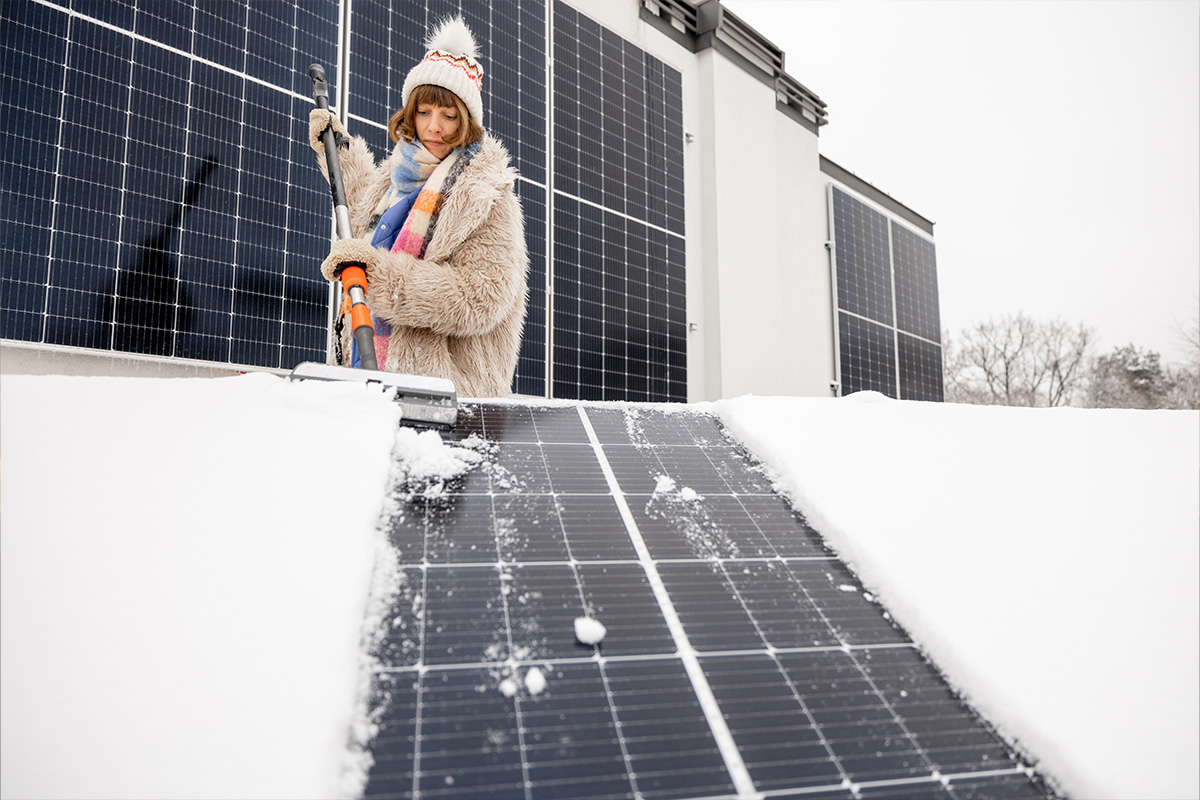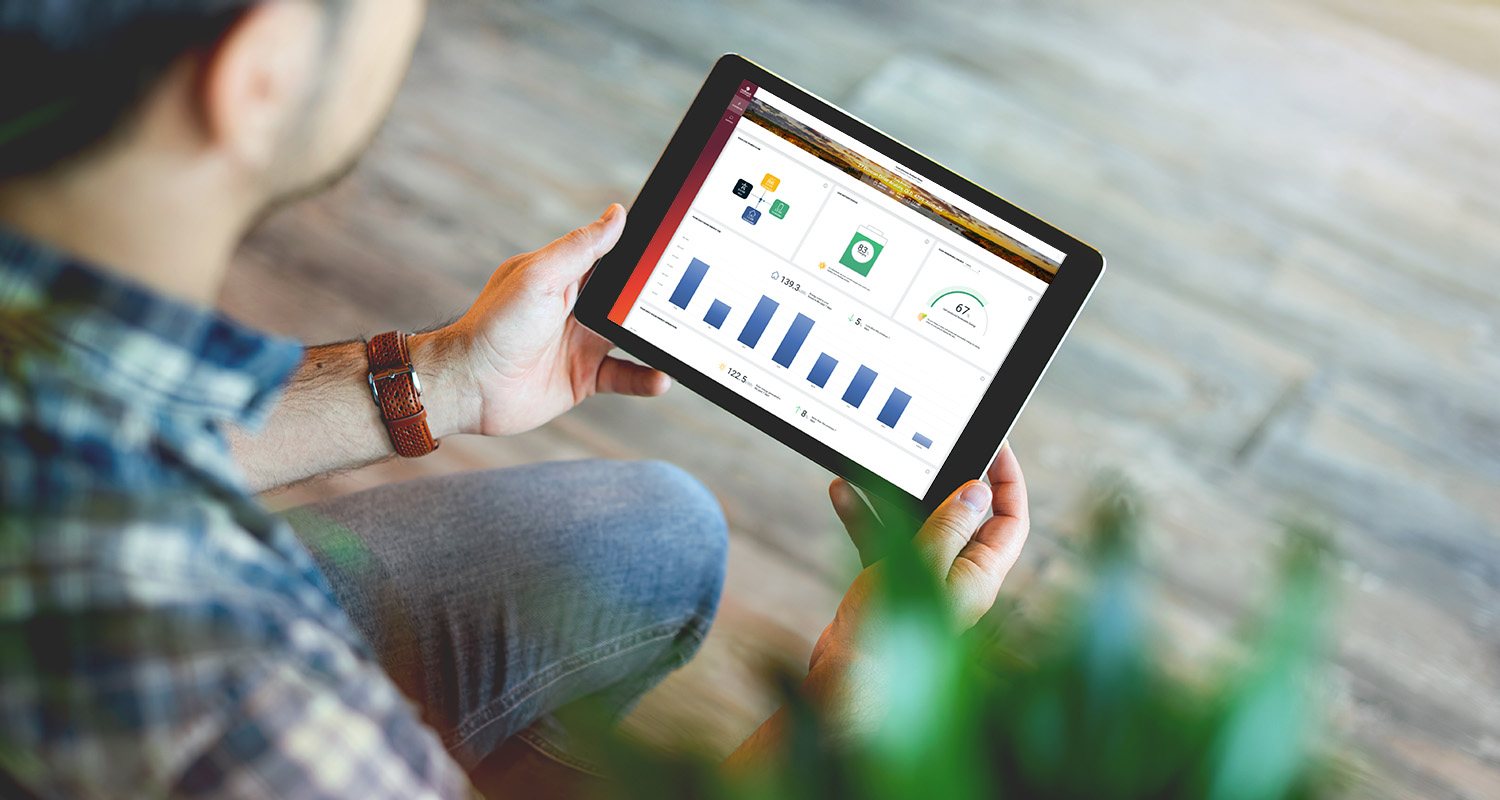When’s the Best Time to Install Solar or a Battery?
When determining the best time to install solar or a battery, many people believe the answer is in the summer. After all, solar systems generate power when the sun is shining and there’s no denying the days are longer and warmer in the summer months, especially with our abundant Aussie sun. However, there are many benefits to installing solar in the winter months, making winter arguably one of the best times to install solar.

Solar panels still work in the winter
Did you know that while it’s true that winter days are shorter, and sunlight may be less intense, solar panels can still generate a noteworthy amount of electricity.
Solar panels operate by converting sunlight into usable electricity through photovoltaic cells. Even on cloudy or overcast days, solar panels can capture diffused sunlight and convert it into power. This means that even during winter, when the sun is lower in the sky and daylight hours are reduced, solar panels can still effectively generate electricity.
Although the output of solar panels may be slightly lower in winter compared to the summer months—solar panel performance can drop by 2% to 15% during winter—they can still make a meaningful contribution to reducing overall energy costs.
It’s worth noting that advancements in solar technology, such as improved panel efficiency and energy storage solutions have further enhanced the performance of solar systems during winter. Some modern solar systems are designed to have higher efficiency levels in low-light conditions, ensuring that they can still generate a substantial amount of electricity even on cloudy or snowy days, meaning that the best time to install solar isn’t necessarily in summer, if you install during winter you should still start to see a healthy return on your investment.
Solar panels need sun, not heat
In the colder months of winter, solar panels can still generate power because they rely on sunlight, not temperature, to produce electricity. While solar panel efficiency can be negatively affected by extremely hot temperatures, cold weather doesn’t hinder their ability to generate power.
Colder temperatures can have a surprisingly positive effect on the performance of solar panels. One notable advantage is that cold weather can enhance the conductivity of the electrical components within the panels. This improvement in conductivity leads to reduced resistance and more efficient flow of electricity throughout the system.
Additionally, in some states, winter often brings clear and sunny days with minimal cloud cover. While it’s true that the overall daylight hours are shorter in winter, the sunlight that does reach Earth during this season can still be quite intense. In fact, in areas where it snows (yes, even in Australia), the snow-covered surfaces can reflect sunlight, enhancing the available light for solar panels. When combined with the improved conductivity mentioned earlier, these conditions can create an ideal environment for solar panels to generate electricity efficiently.

It’s all about the angles
Installing solar during winter offers the unique advantage of the lower angle of the sun’s rays, which can enhance a system’s effectiveness in capturing sunlight and maximising energy production.
The angle at which sunlight strikes solar panels plays a crucial role in the efficiency of the energy conversion process. When the sun is higher in the sky—such as during summer months—sunlight has a steeper angle of incidence when it reaches the solar panels. This means that sunlight must travel through a larger portion of the Earth’s atmosphere, potentially losing some of its intensity and energy along the way. As a result, solar panels may receive sunlight at a shallower angle, which can result in reduced efficiency and energy production.
However, during winter, the lower position of the sun in the sky leads to a more favourable alignment with the solar panels. Sunlight travels through a shorter path in the atmosphere and reaches the panels at a more direct and optimal angle. This alignment allows the solar panels to capture sunlight more effectively and maximise their exposure to solar radiation.
Furthermore, the lower angle of the sun during winter means that shadows cast by surrounding objects, such as trees or buildings, are typically longer and less likely to obstruct the solar panels. This reduces the chances of shading, which can significantly impact energy generation. With fewer shading issues, solar panels can operate at their full capacity, harnessing as much sunlight as possible to produce electricity for your home or to store in your batteries, proving winter is one of the best times to install solar.

Availability of installation services
Another significant advantage that potentially makes winter the best time to install solar or a battery is the increased availability of solar installation services. Winter is typically considered the off-peak season for solar installers, as many homeowners and small businesses tend to opt for installations in spring or summer in preparation for the sunnier months. As a result, solar installation companies often have fewer ongoing projects during winter, leading to enhanced availability for new installations.
With fewer installation projects to handle, solar installation companies may have more bandwidth and flexibility in their schedules during winter. This can translate into shorter wait times for customers and quicker turnaround for installation appointments. Homeowners who choose to install solar or a battery during this season may benefit from expedited installation processes and faster project completion.
Solar installers may also offer promotions, discounts, or incentives specifically targeted at attracting customers during the winter months. Since it’s a quieter period for installations, companies may introduce these incentives to stimulate demand and fill their schedule.
By taking advantage of these offers, customers can potentially save on installation costs or receive additional benefits, making winter a more financially appealing time to invest in solar power or a battery.
Environmental benefits are cool, even in the cold
Installing a solar system with or without a battery during the winter months provides significant environmental benefits, contributing to the reduction of greenhouse gas emissions and highlighting a commitment to environmental responsibility.
Solar energy is a clean and renewable source of power that harnesses the abundant Australian sunlight. Unlike fossil fuels, solar power generation does not release harmful pollutants or greenhouse gases into the atmosphere during operation and uses considerably less water than traditional power plants. By relying on solar energy, we can reduce our dependence on fossil fuels, which are major contributors to climate change and air pollution.
Even during the winter months, a solar system can play a crucial role in reducing greenhouse gas emissions. By generating electricity from sunlight, solar systems offset the need for energy produced by traditional power plants that often rely on non-renewable sources like coal, oil, or natural gas. These fossil fuel-based power plants release large amounts of carbon dioxide (CO2), a greenhouse gas that traps heat in the atmosphere and contributes to global warming.
Adding a battery to your solar system also goes one step further in winter, allowing you to store excess solar generated during the day to power your home once the sun sets. This is particularly important to families who are generally out during the day, allowing them to power heaters and other appliances in the evenings when they get home using their own solar-generated power.
By installing a solar system, you actively contribute to the reduction of CO2 emissions and other harmful pollutants. This reduction helps mitigate climate change, preserve air quality, and protect ecosystems. Choosing solar energy as an alternative to conventional energy sources aligns with sustainable practices that promote a healthier and more sustainable future for our planet.

Installing in winter means you can be summer ready!
Another reason why winter can be the ideal time to install solar or a battery is because it can allow you to be summer ready, giving you ample time to integrate the system into your home and ensure its optimal functionality before the arrival of summer. This proactive approach provides several benefits that contribute to a seamless transition and enhanced performance of your solar power system.
By installing solar or a battery during winter, you allow yourself sufficient time to address any potential issues or challenges that may arise during the installation process. This includes integrating it into your existing electrical system, ensuring proper wiring and connections, and conducting any necessary modifications to optimise performance. It also gives you the opportunity to work closely with your installer to address any concerns or questions you may have regarding the system’s installation and operation.
Once the solar system or battery is installed, the winter months provide an ideal testing period to evaluate the system’s performance. Monitoring the energy production during this period allows you to establish a history of energy generation data. By analysing this data, you can gain valuable insights into the system’s efficiency under various weather conditions, assess its performance in different daylight hours, and identify any potential areas for improvement or optimisation. This information empowers you to make informed decisions about system adjustments or maintenance, ensuring that your solar power system operates at its highest capacity when the demand for electricity increases during the summer months.
Winter is coming, and the best time to install solar is now
There are several reasons why the best time to install solar power may be right now.
One of the significant advantages of installing a solar system or a battery is the potential for significant long-term financial savings. By generating your own clean energy, you can reduce electricity bills, or potentially eliminate them by adding a battery. The sooner you install solar, the sooner you can start enjoying the financial benefits of reduced energy expenses. Additionally, solar power systems have long lifespans, so by installing now, you can maximise the duration of these financial savings and returns on your investment.
The cost of electricity is currently increasing, and this upward trend is expected to continue. By investing in solar, you can shield yourself from future electricity rate hikes. As energy costs rise, the value of the energy you could generate from your solar system also increases, enhancing the financial return on your investment and protecting you from escalating utility expenses.
Installing a solar system or a battery provides greater energy independence, reducing your reliance on the traditional electricity grid. Installing a battery in particular offers peace of mind, especially during power outages or periods of grid instability. By generating your own electricity, you can maintain an essential power supply for your home and enjoy uninterrupted access to electricity, even when the grid experiences disruptions.
Government incentives, such as tax credits, rebates, and feed-in tariffs, can significantly reduce the upfront costs of installing solar power or a battery. However, these incentives may change or decrease over time. By investing in solar power now, you can take advantage of the current incentives and secure the maximum financial benefit. Acting promptly ensures that you leverage the available incentives and optimise your return on investment.

